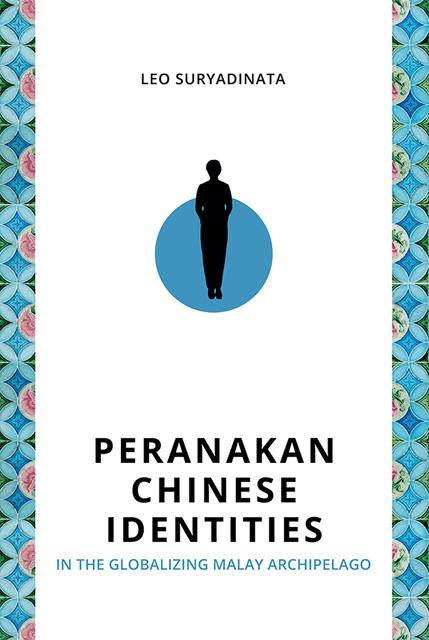Book contents
- Frontmatter
- Contents
- Preface
- Acknowledgements
- Part I Regional Dimensions: Indonesia, Malaysia and Singapore (IMS)
- Part II Focusing on Indonesia
- Appendix 1 The Prospects of the Peranakan Community at the Age of Globalization, by Tan Ta Sen
- Appendix 2 Some Books on the Peranakan Chinese Published between 2007 and 2021
- Bibliography
- Index
- About the Author
14 - The Integration of Indonesian Chinese into Mainstream Society: A Reflection
Published online by Cambridge University Press: 01 September 2023
- Frontmatter
- Contents
- Preface
- Acknowledgements
- Part I Regional Dimensions: Indonesia, Malaysia and Singapore (IMS)
- Part II Focusing on Indonesia
- Appendix 1 The Prospects of the Peranakan Community at the Age of Globalization, by Tan Ta Sen
- Appendix 2 Some Books on the Peranakan Chinese Published between 2007 and 2021
- Bibliography
- Index
- About the Author
Summary
To discuss the integration of Indonesian Chinese into mainstream society is not as simple as it looks. It involves many aspects which have to be clarified prior to the discussion: What is “mainstream society”? Are Indonesian Chinese not yet integrated? In what ways are Indonesian Chinese considered to have been integrated?
Mainstream Society
In fact, “mainstream society” is not an academic term; it is often used in the mass media and in conversations. Some have interpreted it as the main ideology in a given society at a given time; others have used the term to mean “the majority group within a society”. The latter is used in conjunction with “a minority group within a society”. Even when the “mainstream society” is to mean “the majority group within a society”, there is no consensus on the composition of this group. Is this group ethnically homogeneous or heterogeneous? Does this majority group share a common culture? There is no generally agreed concept on the above-mentioned issues.
Nonetheless, in a multi-ethnic society, people believe that there is a “mainstream society”. When referring to this society, people usually mean the ethnic group/groups which is/are the majority group. The non-mainstream society consists of an ethnic minority (or minorities).
Speaking of Indonesian society, it consists of many ethnic groups: ethnic Javanese form 42 per cent of the Indonesian population and is the largest ethnic group in the country; the rest are ethnic minorities such as Bugis, Sundanese, Madurese, Malays, and others. According to the 2000 population census, there were more than 100 ethnic minorities, many did not even make up one per cent of the Indonesian total population. Nevertheless, these minority groups occupy their own region, therefore they are considered as “regional minorities” or “homeland minorities”. As a matter of fact, there are a few “non-regional minorities” in Indonesia; ethnic Chinese is one of these minorities.
Indonesia is a young “nation-state” and it is still in the process of nation-building. “Unity in Diversity” (Bhinneka Tunggal Ika) has become the motto of nation-building. The Javanese have not regarded their ethnic group as the basis for the Indonesian nation; on the contrary, the Indonesian “nation” is based on the Indonesian language (formerly called Malay) which was a linga franca, and all ethnic minorities are allowed to preserve their own cultural identity.
- Type
- Chapter
- Information
- Publisher: ISEAS–Yusof Ishak InstituteFirst published in: 2023



